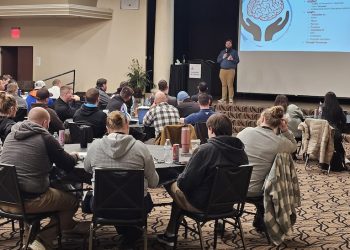Indianapolis, Indiana – Indiana is still one of the 22 states that levies taxes on menstrual and feminine hygiene products. This practice, which makes women pay more for essential hygiene items than males, is frequently criticized as discriminatory toward women.
Democrats in Indiana, led by Senator Shelli Yoder (D-Bloomington), intend to challenge this practice once more in 2024.
Yoder intends to move forward with a new attempt in 2024 to abolish the tax on feminine hygiene products like tampons and pads despite earlier attempts to do so in Indiana failing to win support from the Republican majority that governs the state.
“Under our laws in Indiana, Twix bars, marshmallow fluff, unpopped popcorn — they are all untaxed,” said Sen. Yoder. “And yet, we tax tampons and pads. We tax the ability for women and girls to go to work and to go to school.”
Yoder claimed that the “period tax” imposes a cost on women and girls that men are exempt from. Republicans in Indiana have had prior opportunities to address this charge but have choose not to do so.
“The majority taxes our bodies as they strip away our rights,” Yoder said in an address to Hoosier women. “They build an economy on the backs of women but refuse to guarantee them equality. The period tax and the control of women’s bodies has to end.”
The “period tax” repeal measure is only one of the bills Yoder plans to introduce to the statehouse in 2024.
Yoder also intends to reintroduce her contentious bill that would repeal Senate Enroll Act 1’s notorious near-total abortion prohibition in Indiana.
According to Yoder’s measure, Indiana women would have access to abortion treatment for up to 20 weeks, and those who had been the victims of rape or incest would have “more than 10 weeks to make one of the biggest and most difficult decisions of their lives.”
“As I said a little over a year ago when the Supreme Court of the United States overturned the landmark Roe V. Wade decision, ending decades of guaranteed autonomy, liberty, and privacy for millions of American women. Women’s right to an abortion, their freedom to choose, their rights to autonomy, and religious freedom were undercut thanks to an extreme, vocal minority with outsized political influence,” Yoder said.
“In Indiana, statehouse Republicans showed no hesitation, no mercy. They stepped on the protests of their own constituents and rushed to ban abortion. What followed was a rushed, disorganized, and secretive special session resulting in a radical law that strips half of the state’s population, nearly completely, of their freedom to choose.”
The majority of Hoosiers, according to Yoder, support access to abortion, and he accused the Republican-controlled legislature in Indiana of failing to adequately represent its citizens.
In her Tuesday speech at the Indiana Statehouse’s gathering on reproductive rights, Dr. Amy Caldwell noted that since Indiana’s nearly complete abortion ban was passed, she had “personally seen patients try to end pregnancies in ways that were unsafe and dangerous because they thought they had no other option.”
“I’ve even had a patient, forced to drive across state lines to access care, that got in a near-fatal car crash,” Caldwell said. “And these are just the stories of the patients that find us, the patients that can access care. Imagine all the people that never find the way.”
Caldwell criticized Indiana Attorney General Todd Rokita for his confrontation with Dr. Caitlin Bernard in public, who had performed an abortion on a rape victim long before Senate Enrolled Act 1 was enacted. She referred to his inquiry into Bernard as “unfounded” and characterized it as a “intimidation campaign” aimed at providers of reproductive healthcare.
“(Rokita) has failed the people of Indiana that he swore an oath to protect,” Caldwell said. “What he has done, however, is cause fear and confusion which may very well impact our ability to recruit OBGYNs to a state where there’s already a shortage.”
Following the Supreme Court’s decision to overturn Roe v. Wade, conservative governments around the country reacted quickly, with 20 states passing total or more stringent restrictions. The courts have invalidated numerous state restrictions, including Indiana’s.
“Anti-abortion politicians are not done using their power to control bodies,” said Sen. Greg Taylor. “Nationwide they will continue working to restrict different forms of health care that they do not agree with.”
By regulating and providing monitoring for crisis pregnancy centers, Yoder said she plans to present a third piece of legislation in 2024 in an effort to protect the safety and health of pregnant Hoosier women.
“These facilities prey on women at their most vulnerable,” Yoder said. “Their underlying mission is to discourage women seeking help from accessing health care.”
The nearly complete abortion ban in Indiana has also been challenged in court by people who argue it violates their right to religious freedom. A judge has let a class action lawsuit filed against the state to proceed.
“The government should not have the final say on Hoosiers’ private health care decisions,” said Sen. Taylor. “And this freedom should always, always rest with the people.”
In reaction to the Tuesday gathering of Indiana Democrat leaders, Indiana Republicans said they had nothing to say.



















































































